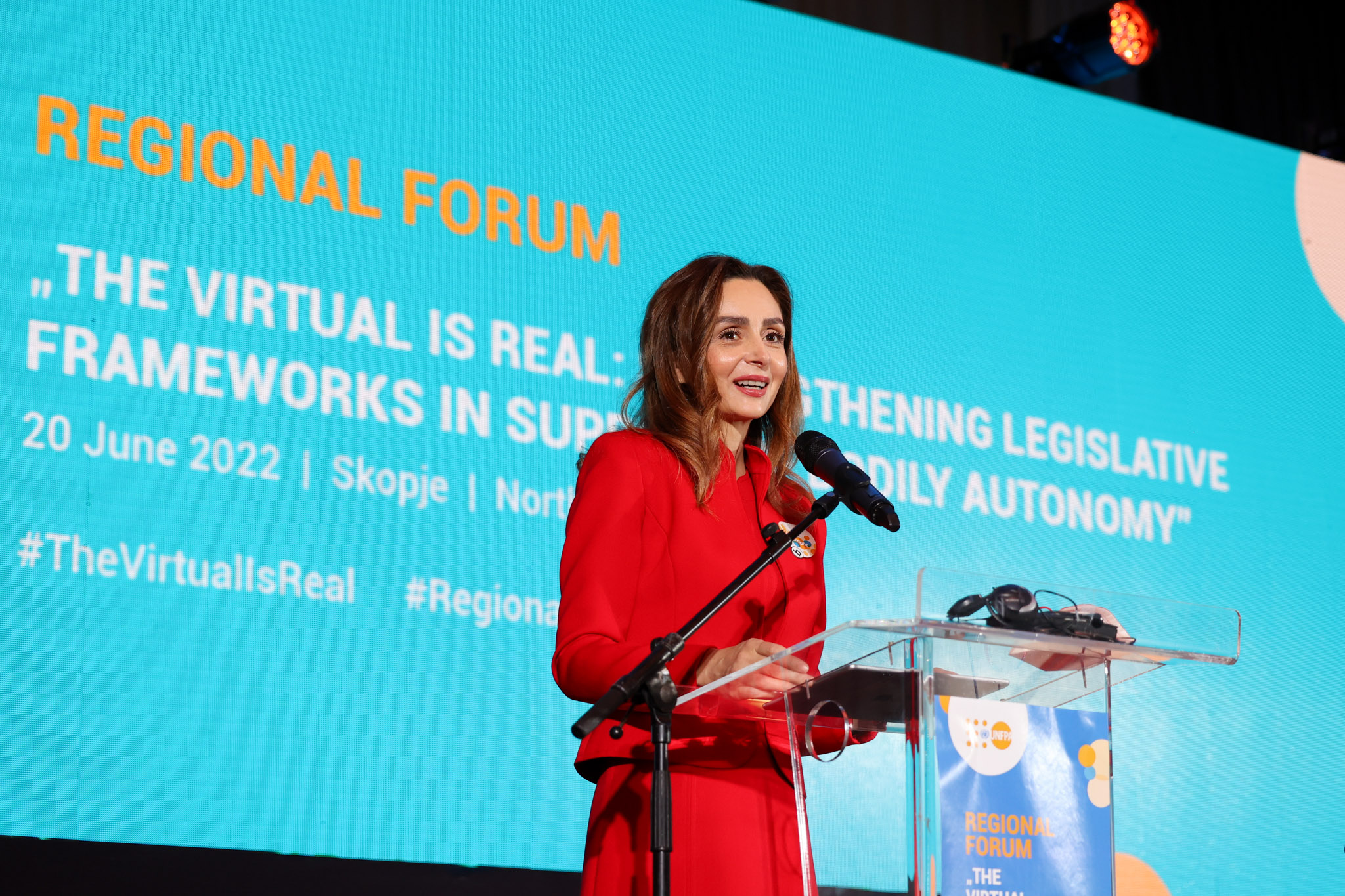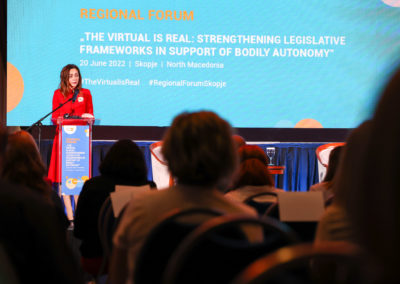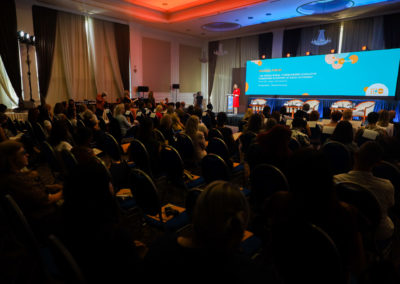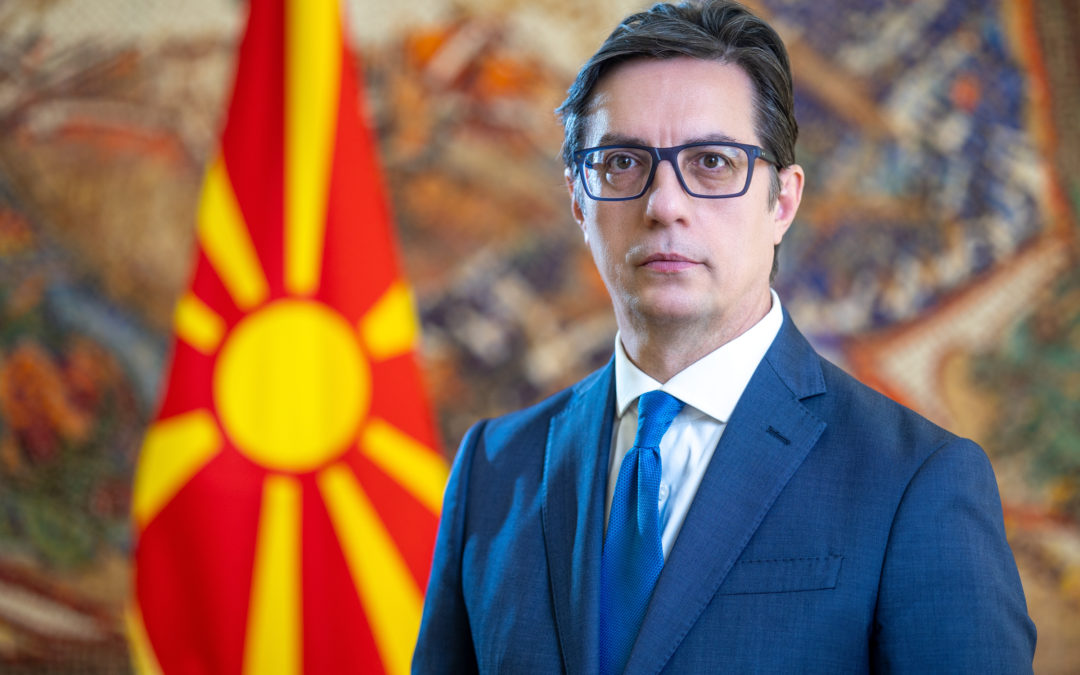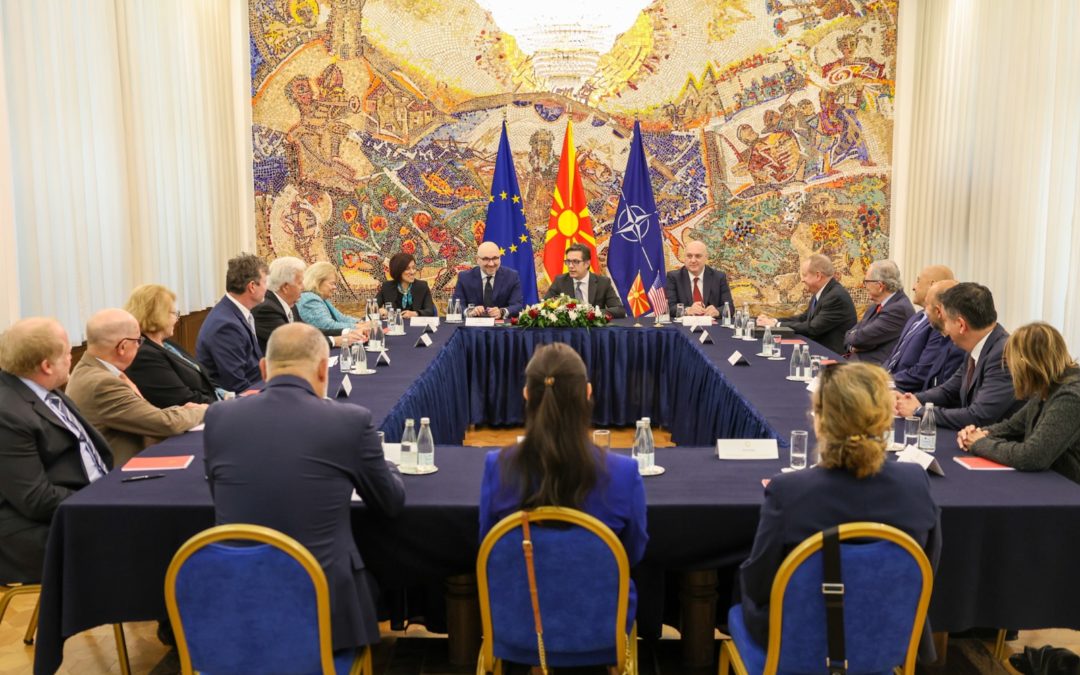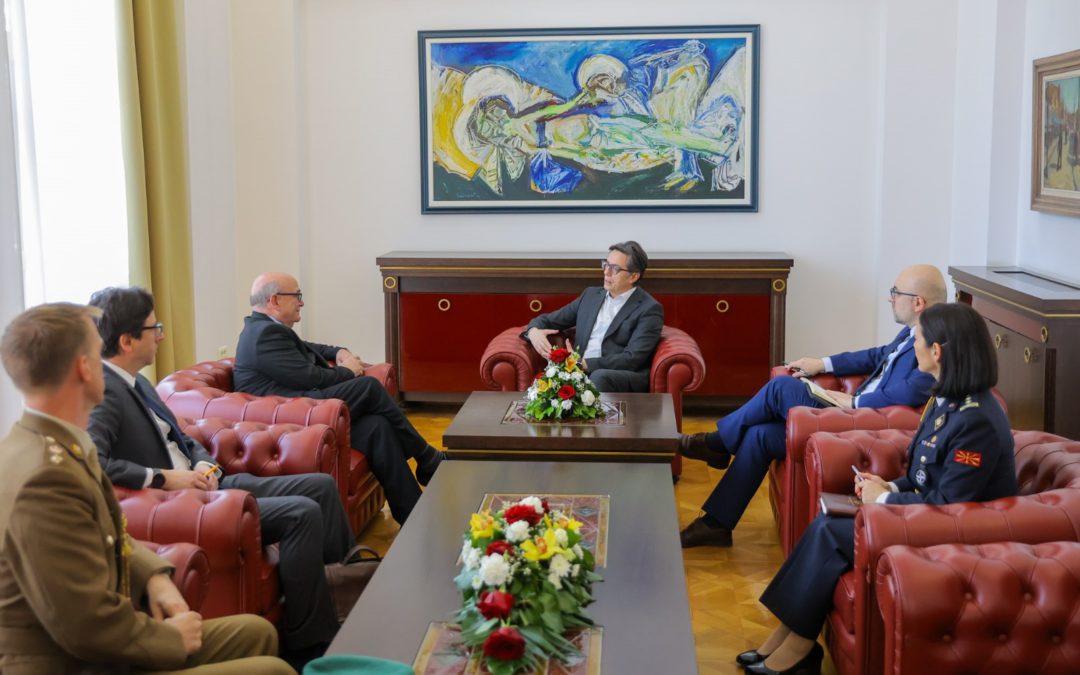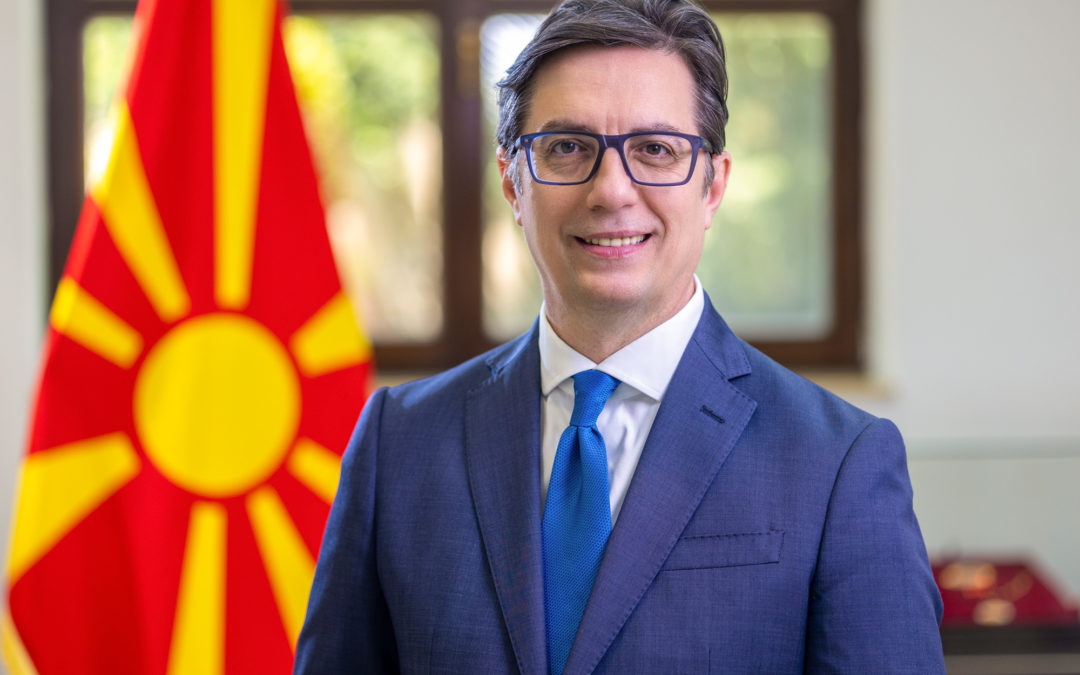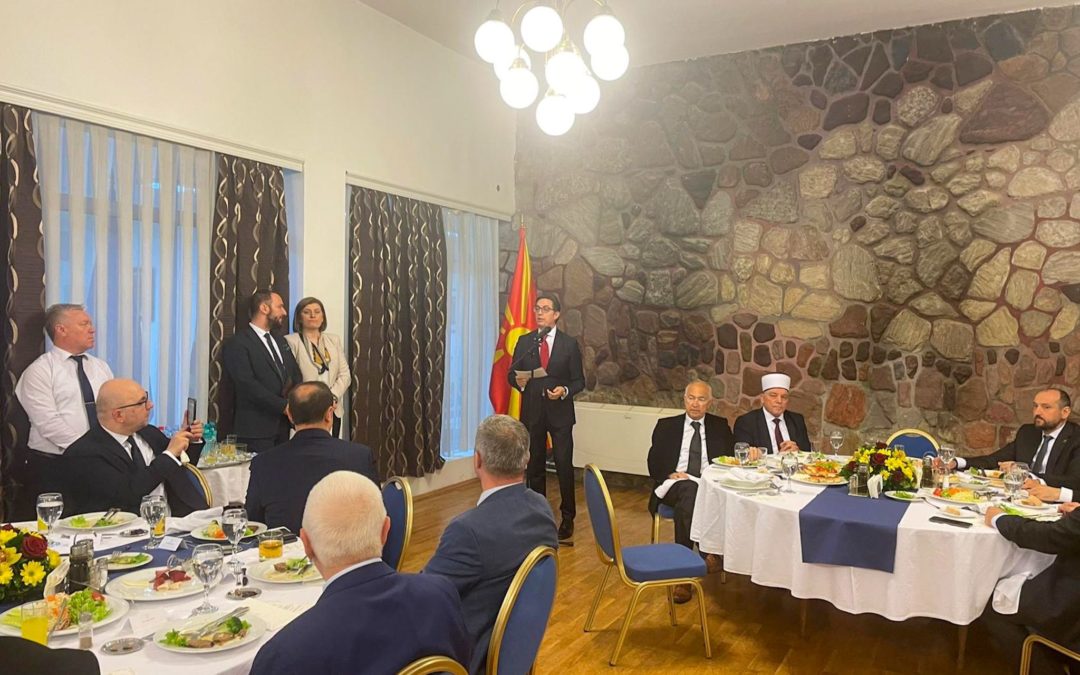First Lady Elizabeta Gjorgievska, addressed the regional forum named “Virtual is real: Strengthening legislative frameworks to support bodily autonomy”, organized by the UNFPA office in North Macedonia in cooperation with the UNFPA office in the Balkans.
In her address at the event, the First Lady emphasized that such forums, where one can talk about the experiences across the region and learn from each other and help each other, are an excellent mechanism that will help create effective solutions. According to Gjorgievska, with the tools at our disposal, we should support the “Bodyright” campaign, aiming to take actions to stop violence against women and girls in virtual spaces.
The purpose of the event was to raise public awareness about the violation of human rights and the protection of bodily autonomy on the Internet through examples from practice, and it is expected to identify the next steps for the current and future roles, as well as the responsibility of the various stakeholders, regional and national governments and development partners.
Dear United Nations Population Fund,
Dear Minister Trenchevska and partners from the region,
Dear attendees,
At the outset, I would like to thank you for the invitation to be among the speakers at today’s regional forum, a high-profile event dealing with the essential topic of bodily autonomy in the context of online violence. Expressed as peer violence, harassing speech, insults, defamation, hate speech or ridicule on social networks based on social, sexual orientation, gender identity, belonging to a marginalized group, violence on the Internet is becoming a growing challenge making it necessary to speak openly and work together to find sustainable solutions to deal with it.
Women and girls, as well as marginalized groups, are often the targets of online violence. According to the data of the United Nations Population Fund, 85% of women at the global level stated that they witnessed and almost 40% stated that they were victims of violence on the Internet.
Considering the worrying situation, it is necessary to see what we have done and set ourselves tasks for what we can do to deal with violence on the Internet. In that direction, forums like these, where we can talk about the experiences across the region and learn from each other and help each other, are an excellent mechanism that will help in creating effective solutions.
I believe that each of us, through the tools at our disposal, should support the “Bodyright” campaign, which aims to take action to stop violence against women and girls in virtual spaces. Solidarity is important as a mechanism to strengthen public awareness and to support victims to know that they are not alone and to encourage them to seek justice for the harm they have suffered.
The right over our body even in virtual space, or “bodyright”, should also be legally protected. We witness cases where photo and video materials of many people are misused and used in various acts of violence, and when the victim tries to win the battle through an institutional way, justice is generally slow. Faced with such challenges, it is understandable that many women and girls do not initiate legal processes to protect their rights to their bodies online.
Within the framework of the regional forum, we will hear experiences from several experts and decision-makers from the region about the situation with violence on the Internet and what tools are available to victims, as well as the measures that should be adopted in order to strengthen their protection.
We often talk about using the internet as a public good, as something that can help us improve public services and inform citizens. The increasing availability of the Internet inevitably leads to greater digital coverage of citizens, which in turn enables citizens to more easily recognize misinformation, use public services, publish content on social media, but also increasingly use social networks as a virtual reality in which, unfortunately, violence is real.
Just as we invest energy to enable citizens to have greater access to the Internet, it is also necessary to work on greater education about violence and about the legal mechanisms that will provide them with protection when they are victims of violence on the Internet. The fact that the Law on prevention and protection against violence against women and domestic violence passed in 2021, sexual harassment via the internet was defined for the first time is to be welcomed, and other efforts are being made to adopt more legal measures for the protection of victims of online violence.
Gender-based violence on the Internet needs to be treated as part of the spectrum of types of gender-based violence. As we talk about family, partner, sexual, physical, psychological, emotional, economic violence, we should also be vocal about violence on the Internet, which can include components of other types of gender-based violence.
The institutional and legal mechanisms for protecting citizens from violence on the Internet, as well as its sanctioning, are insufficiently developed in several countries, including ours. It is understandable that the solutions were brought just recently, because we are facing practically a newer phenomenon. The issue is complex and in the creation of efficient legal mechanisms for the protection and sanctioning of violence on the Internet, I believe that there will be more dilemmas, as well as novelties that should be introduced in investigative and judicial proceedings, as well as legal solutions.
Let us act by shaping new policies, new legal practices that correspond to the new reality, with innovative technological solutions, by raising public awareness and with joint efforts of institutions, the business community and the civil sector. Together, I believe that we will come up with effective solutions.
Thank you.

